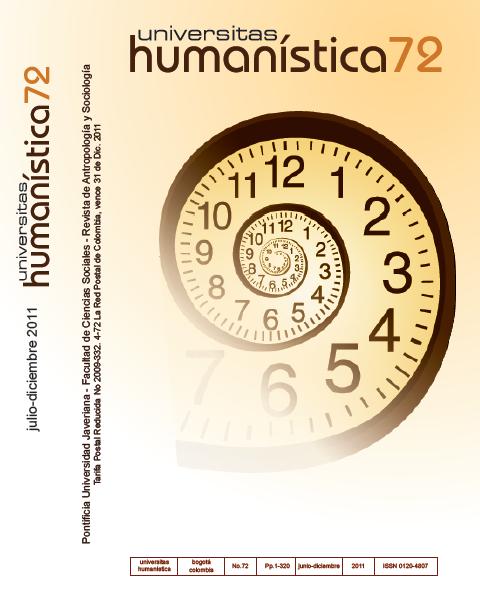Abstract
Colombia may be characterized as a society ruled over by “a routinization of war and oblivion”. When memories about violent events succeed in articulate themselves and transcend the private space, they are not necessarily incorporated to national memory through “memory policies” in transitional processes. These memories are “deposited” rather than discussed. Testimonial literature is one of those “deposits”. There are times when certain topics, witnesses, authors and narrative treatments attain an unexpected relevance. Such a relevance follows national factors, like the dynamics of conflict and society in Colombia and abroad, such as a “turn to past”. When making a survey across the development of the testimonial genre from mid-20th century Violence up to our times, the gravitation of several cultures of memory is made evident in a society where oblivion appears to prevail.
This journal provides immediate open access to its content on the principle that making research freely available to the public, encourages greater global exchange of knowledge.
The journal Universitas Humanística is registered under a Creative Commons Attribution 4.0 International Public License. Thus, this work may be reproduced, distributed, and publicly shared in digital format, as long as the names of the authors and Pontificia Universidad Javeriana are acknowledged. Others are allowed to quote, adapt, transform, auto-archive, republish, and create based on this material, for any purpose (even commercial ones), provided the authorship is duly acknowledged, a link to the original work is provided, and it is specified if changes have been made. Pontificia Universidad Javeriana does not hold the rights of published works and the authors are solely responsible for the contents of their works; they keep the moral, intellectual, privacy, and publicity rights.
Approving the intervention of the work (review, copy-editing, translation, layout) and the following outreach, are granted through an use license and not through an assignment of rights. This means the journal and Pontificia Universidad Javeriana cannot be held responsible for any ethical malpractice by the authors. As a consequence of the protection granted by the use license, the journal is not required to publish recantations or modify information already published, unless the errata stems from the editorial management process. Publishing contents in this journal does not generate royalties for contributors.


